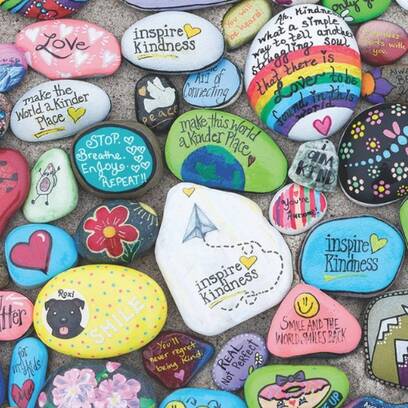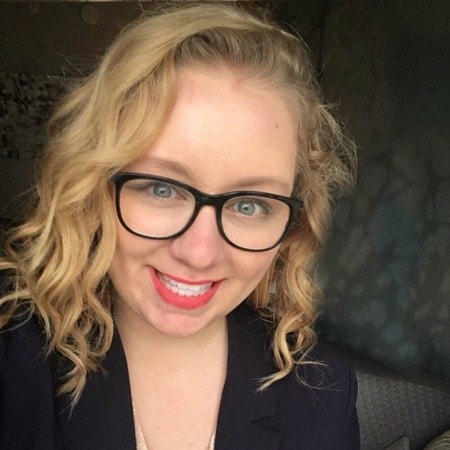 By Tara Watkins, LICSW During the High Holy Days many of us find ourselves reflecting on the role of forgiveness in our lives. We look back on the past year, consider the mistakes that may have been made and explore ways to atone. Sometimes as we work to make amends, we may find ourselves forgetting an important piece of the forgiveness process, self-forgiveness. Due to the COVID-19 pandemic, many of us have struggled with increased family tensions, changing expectations, lifestyle restrictions, and uncertainty. We have also had to face new parenting challenges, complications with caring for older parents and loved ones from a distance, new job responsibilities (or perhaps loss of employment), not being able to be present during a loved one’s serious illness or end of life moments, and many other COVID related losses and struggles. With all these new complexities on our plates we might, unjustly, start to blame ourselves for things outside of our control. Robert Enright Ph.D in his Psychology Today article entitled “Whom Do I Forgive in the COVID Crisis?” states that sometimes those who care for others can develop a false sense that they never have done quite enough. We have to remember that the feelings we are experiencing now are normal and common experiences during the pandemic. We cannot forget that the ability to forgive ourselves for mistakes, both large and small, is critical to both our psychological and physical well-being. Studies have found that difficulties with self-forgiveness are frequently linked with self-harm behaviors such as eating disorders, substance abuse, and suicide attempts, among other problems (Breines, 2012). If you find yourself experiencing any self-harm behaviors, please speak with a trusted mental health professional or call one of the 24-hour hotline numbers listed at the bottom of this article. Shame and guilt are often felt by those who struggle with self-forgiveness. Although these emotions may seem similar for in both experiences, we feel bad about ourselves, they are different. For example, feeling guilty may be healthy when it opens doors that lead to positive behavior change. On the other hand, shame is often very unhealthy causing lowered self-esteem, feelings of unworthiness, and behavior that reinforces that self-image (Engel, 2017). One way to reduce feeling shame is to develop compassion for ourselves. According to psychotherapist Beverly Engel, compassion is the antidote to shame. Feeling compassion for ourselves does not release us from taking responsibility for our actions. But, it can release us from the negative self-talk that prevents forgiving ourselves and frees us to respond to the situation with more clarity. The following are a few suggestions that may help if you are struggling with forgiving yourself and letting go of negative self-judgment (adapted from Cowan and Thal, 2015).
Chag sameach and l’shana tovah! If you find yourself struggling with self-forgiveness I encourage you to reach out to a member of the temple clergy, for 24/7 mental health support consult BH link hotline 401-414-LINK (5465), or if for those 18 and under please call 855-KID (543)-LINK (5465). The national suicide prevention hotline is 1-800-273-TALK (8255). Also, as the Kesher worker for the temple I am available to connect you to necessary community resources to help address COVID related struggles you may be experiencing during these challenging times (phone: 401-428-4084 or [email protected]). Please note that Kesher is not for immediate emergency situations. _____________________________________________________________________________________ Beverly Engel L.M.F.T. “Healing Your Shame and Guilt Through Self-Forgiveness, posted June 1, 2017.https://www.psychologytoday.com/us/blog/the-compassion-chronicles/201706/healing-your-shame-and-guilt-through-self-forgiveness Emotional Well Being and Coping During COVID, Weil Institute of Neurosciences, University of California San Francesco, Department of Psychiatry and Neurosciences https://psychiatry.ucsf.edu/coronavirus/coping Rabbi Rachel Cowan and Dr. Linda Thal “Wise Aging: Living with Joy, Resilience and Spirit, Behrman House: New Jersey, 2015. Robert Enright, Ph. D. “Whom Do I Forgive in the COVID-19 Crisis?” Mar 24, 2020 Psychology Today. https://www.psychologytoday.com/us/blog/the-forgiving-life/202003/whom-do-i-forgive-in-the-covid-19-crisis Roger D. Williams, Jessica A. Brundage, and Erin B. Williams (May 2 2020) Moral Injury in Times of COVID, J Health Serv Psychol, 1–5. https://www.ncbi.nlm.nih.gov/pmc/articles/PMC7195905/ |
Samantha ClarkSamantha Clark is part of the Kesher Worker team at Temple Sinai. Kesher is the congregational outreach program of Jewish Collaborative Services of Rhode Island, funded by the Jewish Alliance of Greater Rhode Island and private donors. Katie can be reached at 401.415.8213 or by emailing Archives
April 2021
Categories |

Affiliated with the Union for Reform Judaism
30 Hagen Avenue • Cranston, RI 02920 • 401-942-8350 Office: dottie@templesinairi.org Rabbi Jeffrey Goldwasser: [email protected] |
Want to sign up for the weekly Sinai Scroll email?
Click here to receive weekly updates on Temple services, events and a message from the Rabbi. |


 RSS Feed
RSS Feed

